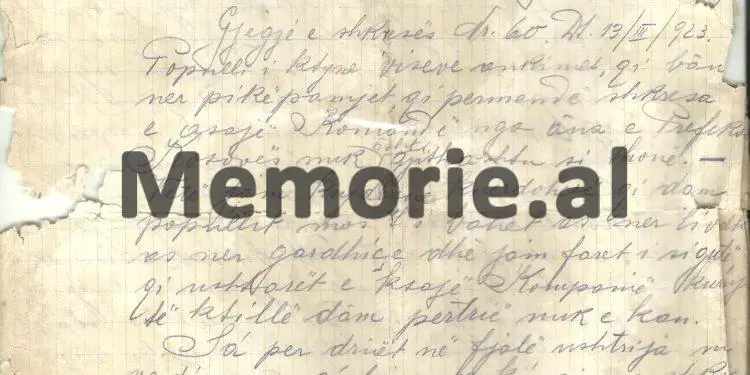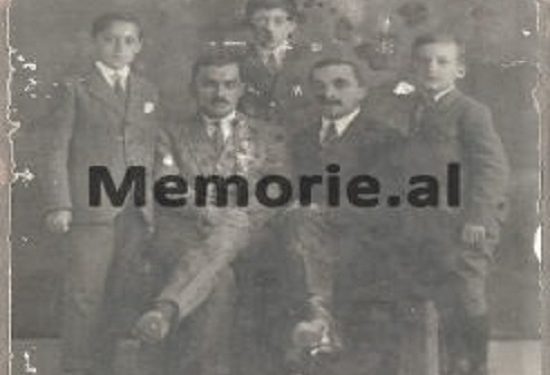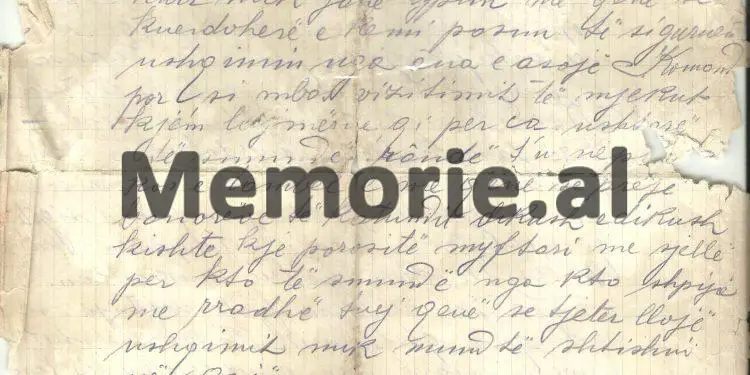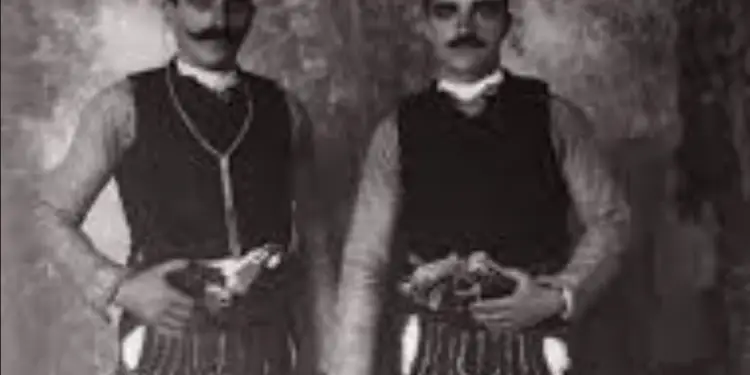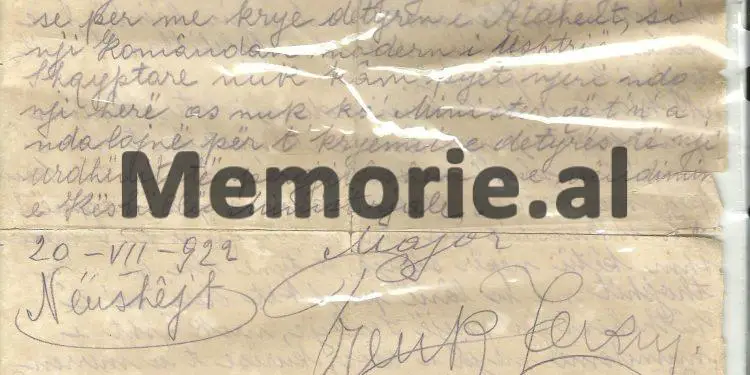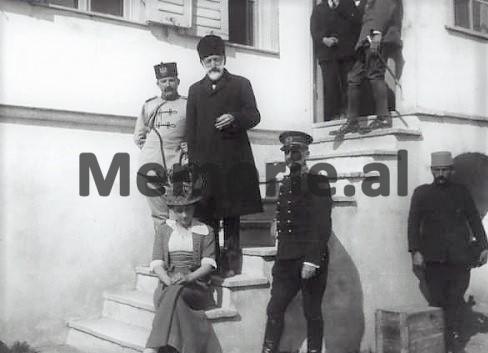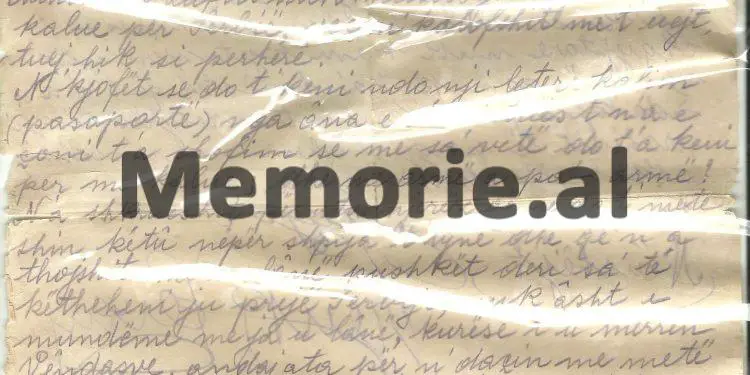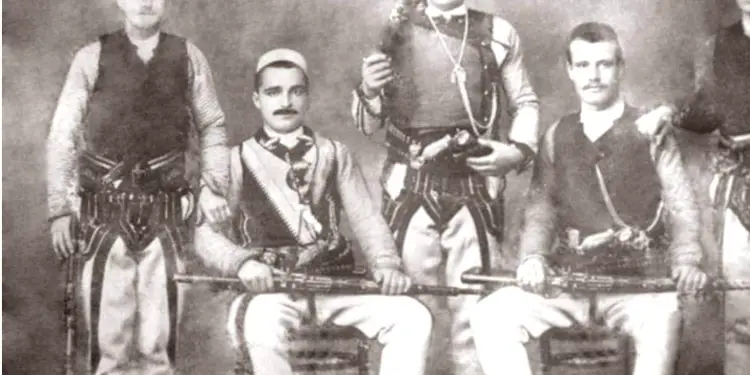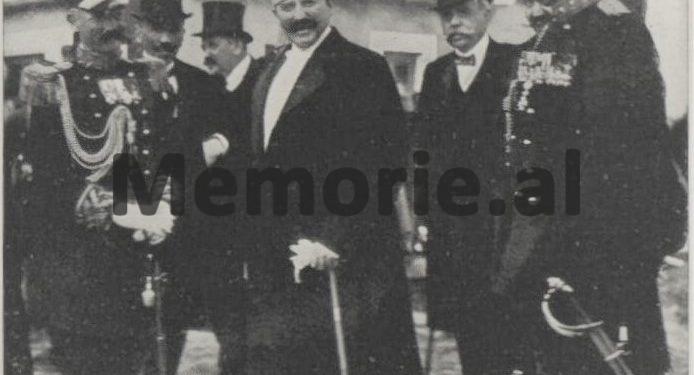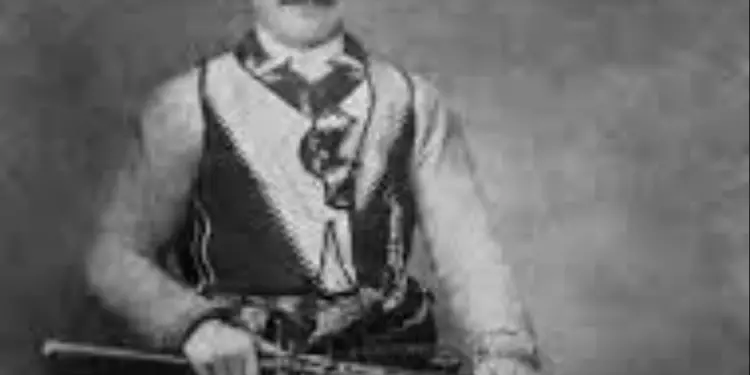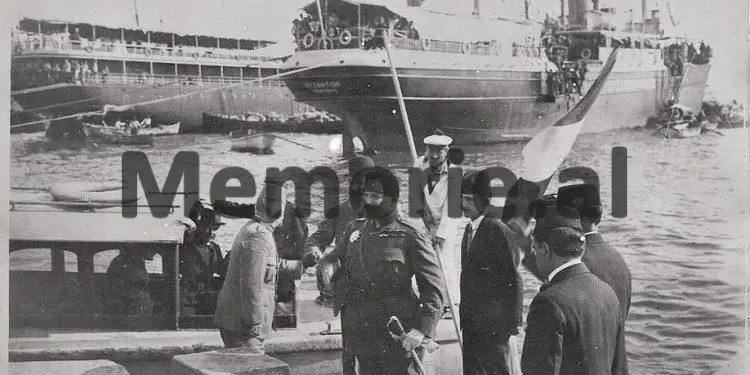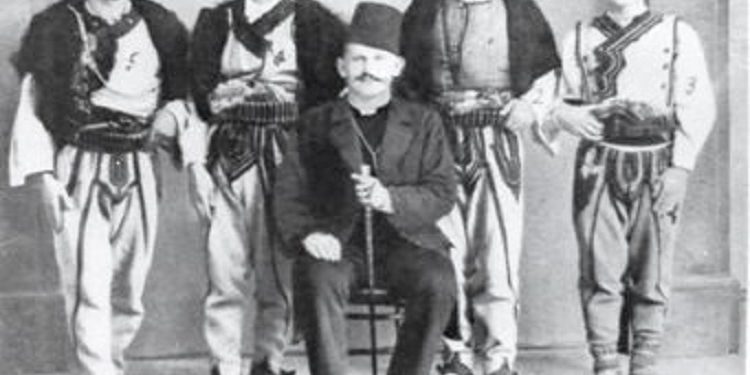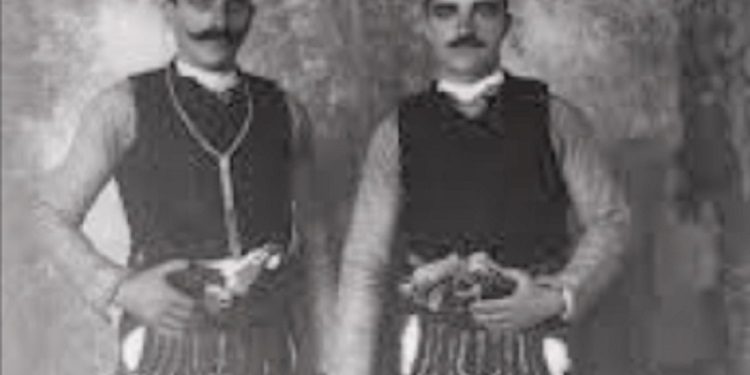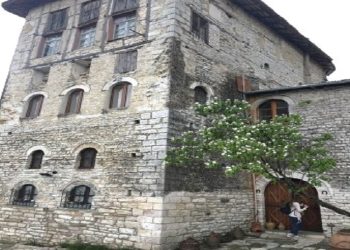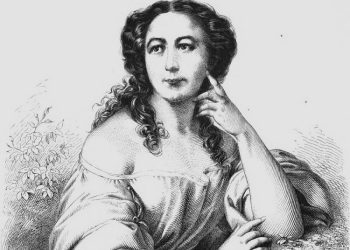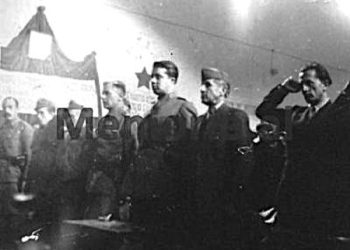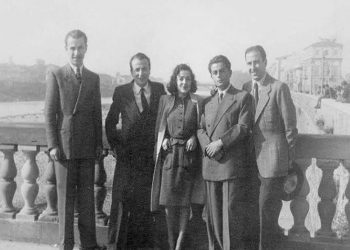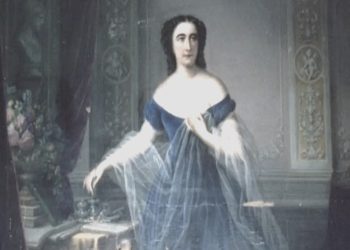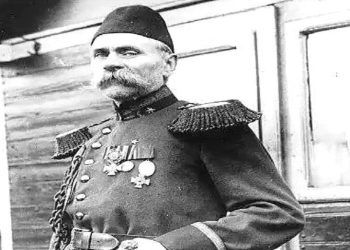Dashnor Kaloçi
Memorie.al publishes the unknown story of Major Preng Jakut, originally from the village of Kepruell in the Lezha Highlands, who after being educated at the Franciscan Seminary in the city of Shkodra, in 1916 was sent by the Austro-Hungarians to Vienna, Austria, where he graduated from a military school and then returned to his homeland, where by special decree he was named an officer with the rank of lieutenant. The brilliant military career of Preng Jakut, who for the bravery shown in several fights, in 1921 was appointed commander of the Special Battalion, created by the Albanian Government from the Congress of Lushnja, giving him the rank of major, where at his head he took part in the suppression of several rebellions and the Mirdita Uprising, refusing to make concessions to the Gjonmarkaj. The tragic story of Major Jakut, where after suppressing the uprisings of Gashi and Krasniqe that were organized and led by Bajram Curri, he lost his life in tragic circumstances, fishing in the village of Luzhë in Tropoja, where he had stayed for a vacation together with the staff of the battalion he commanded. The efforts of the Minister of Interior, Ahmet Zogu, to save his life by sending him to his personal doctor, as well as the great echo that his death had in the press of the time.
It was June 27, 1923, when the chief of staff of the then Minister of Interior of the Albanian Government, Ahmet Zogu, handed over to his chief a telegram coming from the Krumë Sub-Prefecture. As soon as the minister received the telegram, your eyes filled with tears and your head rested on the two arms crossed on the table, crying like a child for about two hours. What had happened? The sub-prefecture of Krumë, announced that in Luzhë of Tropoja, from the wounds received on the evening of June 26, the commander of the Mobile Battalion, Major Preng Jaku, had passed away.
Who was Preng Jaku?
He came from a well-known family from the village of Bulgeri in the province of Mirdita, where the administrative map still divides the district of Lezha, with that of Kurbin, Mirdita and Mat. Assisted by his uncle, who was the Abbot of Mirdita, Preng Doçi, (one of the first founders of the Albanian diaspora in the US sometime in 1887), little Prenga was first educated in Mirdita, and more after in the civic school of the Franciscan Seminary in Shkodra where he studied for seven years and stood out as one of all the other students for the high preparation in lessons. The time that Prenga studied near that seminary coincided with the period when the Austro-Hungarian armies were sitting “cross-legged” in Albania and trying to take over the reins of a state where a total anarchy had broken out, as a result of the Great War, as called at that time and afterwards, the First World War. It is said that little Prenga did not prefer to go with his peers to the gravel of the river Mati, which passed near their village, but he followed from behind the military caravans that at that time and in those places were not few. He was so obsessed with the army and armaments that he could seldom find any kind of armaments he did not know how to use, just like the most trained military. Prenga had become such a problem for the military caravans that at that time and in those places were not few. Prenga had become such a problem for the military caravans passing through his village, that the Austro-Hungarians sentenced him to solitary confinement in the Lezha prison, from where he could escape one day, after throwing a guard around his neck and disarming him. After that he returned again to his village, Bulgër, staying hidden for fear of being arrested again. Seeing his inclinations, the Abbot of the Abbey of Orosh, Preng Doçi, who was his uncle, intervened with the military authorities of Austria-Hungary and sent him to a military course in Shkodra, which was under the care of the German detachment in that city. . Prenga attended a course that prepared students for their next trip to the Military Academy in Germany, for nine months without interruption, being mobilized as a soldier near the German detachment. Seeing his results, the German detachment sent him for another nine months, to the reserve officers’ school in Vienna, Austria, and four months to the city of Graz.
After graduating in Austria he returned to his homeland and enlisted in the army
After finishing the school of reserve officers in Austria, Prenga returned to Albania and presented himself at the Austro-Hungarian Corps Command in the city of Shkodra, which seeing the results of his diploma, with a special decree, on February 4, 1917 , decreed him as a military with the rank of Aspirant. After four months with the decree of Arme – Ober, the Austro-Hungarian Command, on May 1 of that year, promoted him to Lieutenant and from that day, Preng Jaku entered the service of the Albanian Government. Regarding the beginnings of his military career and frequent promotions, in the memoirs that he had written with his own hand, among other things it is said: “After returning from Austria with the rank of Aspirant I was immediately commanded in front of Starova, where after four months I was named as Fachnrich. On this front, in addition to fighting and general defensive and offensive efforts, especially our attack on a patrol under my command, where we captured five French captives. For this service, I was awarded the ‘Lilberne Fapferkeh Medal of Class’ decoration. Later again, with a force of 100 men under my command, I raided a French platoon in Mokër of Pogradec and circled the French platoon’s shell, and after they did not surrender, 15 people died and two Frenchmen took us captive. For this service I received 1000 kroner as a reward and was decorated with ‘Lilberne Cruise II class’, but as the destruction of the front quickly happened, I was not lucky enough to receive it. For other fights I also received ‘Brouzene Fapferkehits medaile d’ and ‘Karl – Fruppen Kreuz”.
After the Congress of Lushnja, Commander of the Mobile Battalion
At the end of the Congress of Lushnja, the Provisional Government that emerged from that Congress decided to create a Mobile Battalion (special), based in Tirana, as an integral part of the Brotherhood, which would carry out all military operations in all Albanian territories. Where there would be rebellions, uprisings or anarchies, for not recognizing that government out of congress. The commander of this Battalion was appointed Preng Jaku, who was given by decree the rank of major, as a highly trained soldier, because in addition to studies in Austria, he was distinguished in military operations in the area of Pogradec, against the French who wanted to declare it and Korça as areas under their jurisdiction. As expected, after the Congress of Lushnja, in the great anarchy that had plagued Albania at that time, uprisings began in various provinces that did not recognize the government that emerged from the Congress, where various leaders and bayraktars of the North, declared autonomous provinces to ‘self-governing them, etc. In that great anarchy, Esad Pash Toptani also stood out, who formed his government in Durrës in order to form a principality under his command, with possessions between the two rivers Mat and Shkumbin. In this situation of precipitation of events at that time, the Special Mobile Battalion created by the decision of the Government to leave the Congress of Lushnja, under the command of Major Preng Jakut, had to start the first fighting against the Assad forces, which were in the suburbs of Tirana, Durrës, Shijak, Kavaja and Peqin. Regarding these fights and the numerous operations that Preng Jaku conducted with his Wandering Battalion, in his memoirs, among other things, he wrote: “Since February 4, 1919, when we started serving in our government in the branch of Fraternity, we have been used almost for operations, without ever being given permission, except once a day, nor for any other reason, especially to be mentioned are:
a) Operation Dumre in a time of very dangerous anarchy.
b) Risky aid of the Lushnja Conference.
c) The fighting against the Dibrans who had occupied Elbasan, as the beginning of the Esadist insurgents in Gur i Kuq of Çermenika, where after a turn we made to the insurgents, four Dibrans were killed and two were taken prisoner.
d) Staying in the circle of Esadists in Tirana.
e) Under the command of Major Kasem Qafzezi, the fighting for eight nights in Preza against the Esadists, where from our command four relatives were killed and three wounded.
f) Back in the command of Colonel Bajram Curri, they raided the castle of Preza, where they were Esadist forces, and after four of our company was killed and five were wounded, the castle was taken for two and a half hours of fighting.
g) In the offensive to occupy the 1913 border in Gollobordë of Dibra, we tried in three-day fighting, until the above-mentioned border was closed.
gj) In the offensive of the Serbs to occupy the areas of Albania again and to be able to destroy our state, we fought for two days and two nights, in the defensive fights against the Serbs on the front of Çermenika and Martanesh, I won for five months and continued half in front.
In the war to lay Mirdita after the Gjonmarkaj uprising
From the beginning of 1921, due to the dissatisfaction they had with the government that did not give them high positions, the Gjonmarkaj did not recognize the Government of the Lushnja Congress and after that they wanted to declare the Autonomous Province of Mirdita, under a principality headed by John Mark John. Thus, to prove that they did not know that government, in the village of Mnelë in Mirdita, the Mnelaks killed four gendarmes who were the only representatives of the Government in power, as no other kind of administration functioned in those parts and the influence of the government was not felt at all. . Based on this event, the Government ordered the Mobile Battalion under the command of Major Preng Jakut, to go immediately to Mirdita, to carry out an operation to establish peace and stability and to subdue the disobedient to the laws of the state. Regarding this operation, among other things in his memoirs, Preng Jaku testifies: “On April 12, 1921, on the occasion of the murder of four gendarmes by the Mnelagians, by order of the General Command of Gendarmerie, we went with a force of 350 people and we surrounded (surrounded) Mnelen, Laç and Hajmel. In those areas there was neither administration nor the power of the Government had no influence and for the fine of killing four cattle, they took from those areas a quantity of living things, which through a commission we sold in Shkodra for 720 napoleons of land , which we handed over to the General Brotherhood Command. After the operation in Mirdita started, for five months we were constantly trying, but the most important thing for me was mentioned, there are four fights with very useful results which I can call “straordinarje” that were won with our initiative .
a) The fight with full profit that took place against a force of 1300 people of Halit Lleshi and Taf Kaziu in Lura, where 51 committees were killed. These committees had left Dibra to go out and join the committees of Mirdita in Orosh and if they were not attacked overnight by our power, tomorrow they would join the forces of the committees of Mirdita, which were waiting for them in ” Orosh Mountains ”, who also surrounded Captain Dervishovic’s forces in Orosh. As soon as I received this news, you left the official power in Rec and Dardhë e Lurë, against the committees of Halit Lleshi, with volunteers from Lure and Kthelle, I sent you to help Captain Dervishi, where after in “Bjeshkë të Oroshit” we rejoined the surplus of the operation force, Lieutenant Colonel Ali Fehmiu (Kosturi). With fighting in “Bjeshkë”, we took him to Orosh, but unfortunately, Captain Dervishi was surrendered.
b) Taking the Church of Orosh and staying for seven days with a lack of food and ammunition.
c) The capture of Shkalgjana for the second time under our command after the Dibrans returned.
d) Taking Spaç and Munella and fighting and circulating in Fan and gathering the recruitment in Fan, Spaç and Kushnen ”.
Captain Ndrec Prenga, the son of Bajraktar of Kthella, Llesh Marka Prenga, also joined in the help of the Mirdita insurgents led by Gjon Markagjoni. Captain Ndreca was an effective Battalion under the command of Preng Jakut, but he deserted from the Battalion and joined Gjonmarkaj. Preng Jaku at the head of the Wandering Battalion managed to pull Ali Fehmi Kosturi’s forces out of the siege and subdue the insurgent forces commanded by Gjon Markagjoni, who, along with other insurgent leaders, was forced to leave his province and flee to Serbian. During the operation to suppress this uprising in Mirdita, Major Preng Jakut received two letters from Captain Gjon Markagjoni, asking him to allow them and some of their forces to leave the siege of the government forces armed. Commanded by him and leave for Serbia. For this, they informed Prenga in the letters sent, that they had agreed on that action and with the Minister Ahmet Zogu, who according to them had authorized them orally, to use his authority, so that no one would issue you. Obstacles, to cross armed to Serbia. Regarding these two letters to Captain Gjon Markagjoni (which are in the voluminous file of Major Preng Jakut inherited from his descendants), he replied: “We have no knowledge of the matter of your agreement with the government. We cannot inform you to cross to Serbia without an order from the Ministry of War. If we have a passport (passport), let us see how many people you want to cross and with a gun or without a gun… “.
Regarding the allusions that Gjon Markajoni made in his two letters sent to Major Prenga, how he, being himself from Mirdita comes to suppress the Mirdita uprising, while Ahmet Zogu makes concessions to them, Major Prenga, replied: “As for our arrival for the disarmament of the Mirdita Sub-Prefecture, there is no need for you to receive explanations from us, that in order to carry out the duty of the homeland as a modern commander of the Albanian Army, I have never asked anyone, not even a minister to stop us from carrying out of the duty of a general order with the decision of the Ministerial Council ”.
With the suppression of the Mirdita uprising, Major Preng Jakut was given fame and authority throughout Albania, as a skilful soldier who at the head of his Battalion had managed to place the disobedient Albanians at a time when Albania was experiencing tyranny. Of a great anarchy.
Major Jaku is received in Tirana with honors by the Parliament
After the suppression of the Mirdita uprising, Major Preng Jaku with his Mobile Battalion returned to Tirana as a triumphant. The government and Parliament of that time organized him a special reception, making him all the honors of a victor. By a special decree, the “Walking Battalion” was granted a long vacation, while Major Preng Jakut was given a free house (villa) by the state, to settle there with his family. The victory of Major Preng Jaku over the Mirdita insurgents came after many fighting operations that he had done in many different regions of Albania, such as: Pogradec, Librazhd, Elbasan, Dibër, Dukagjin, Tirana, Durrës, Shijak, Peqin, etc. After many operations and fights, Prenga moved to his new home in Tirana, bringing there his wife, Mrika, as they had no children. But in those days, in the mountains of Gashi and Krasniqi, riots had started against the Government, which were led by Bajram Curri. Seeing the situation created, the Government of that time thought of sending Major Shefqet Korça to suppress that uprising. Major Korça, although he was a brave and skilful soldier, this time pretended to be ill and could not go. This was also accepted by the Minister of Internal Affairs Ahmet Zogu, who proposed to the government that instead of Major Korça, Major Preng Jaku go again with his Battalion.
The uprising of Gashi and Krasniqa and the accidental murder of Major Prenga
Major Prenga received the order to start again in the military operations to put down the rebellions of Gashi and Krasniqa with great sadness, but he learned that he would never oppose the orders of his superiors, especially when Albania was in a situation of such, decided to go. Thus, in June 1923, together with his Battalion, he managed to suppress the uprising and disarm the rebels in all those provinces, thus ensuring the tranquility of those areas and securing the state borders. After many days of fighting, returning with the troops of the battalion he commanded, he decided to take a break in Luzhë of Tropoja, to relax a bit from the fighting and the long road. Major Prenga, together with the officers of the Battalion, to have fun, fell on the bank of the Valbona River, fishing with some bombs that were almost expired, with broken fuses that were lit only with matches. Testing such a bomb together with a captor, she exploded it in her hands, without throwing it into the water yet. From its explosion, Major Prenga cut off one of his arms and inflicted numerous wounds on his body and face. Immediately after that, his officers sent him to a house in the village of Luzhë, where he came and treated him with the possibilities that a Catholic priest from a neighboring village had, and Tirana was also informed of everything that had happened. After receiving the news, the Minister of Interior, Ahmet Zogu ordered his personal doctor to leave immediately for Tropoja, but despite the doctor’s treatment from Tirana, the wounds became inflamed and Major Preng Jakut’s health began to deteriorate sharply and he passed away on the night of June 26, 1923. According to the will that was left before he closed his eyes, to his two brothers who arrived after two or three days in the village of Luzhë, his burial took place in his native village, Kepruell of Mirdita, after the mortuary rituals at the Church of the Early Benedictines, very close to his house.
The newspaper “Ora e maleve”, about the death of Major Jakut
The news of the accidental death of Major Preng Jakut immediately spread almost throughout Albania, through the announcement made in some newspapers of that time, it is even said that the foreign press wrote about that event. Regarding the death of Major Jakut, among the numerous newspapers that covered that news, “Ora e Maleve” which was published in the city of Shkodra by Catholic clergy, among others in its issue dated July 1, 1923, wrote the official announcement of the Albanian government. of that time, where it was said: “Major Preng Jaku diq. The Command of the Kosovo Army, reports from Krumet that Major Preng Jaku was wounded himself to hunt fish and on June 26, 1923, he lost his life. His body, according to the wish he left in his mouth, was escorted by a company, starting from Luzha and being transported to Malësia of Lezha. The government ordered the highest honors to be paid to him, who is here among the best Albanian officers. His loss is shed with tears by every Albanian”Press Director, Terenc Toçi. Memorie.al





